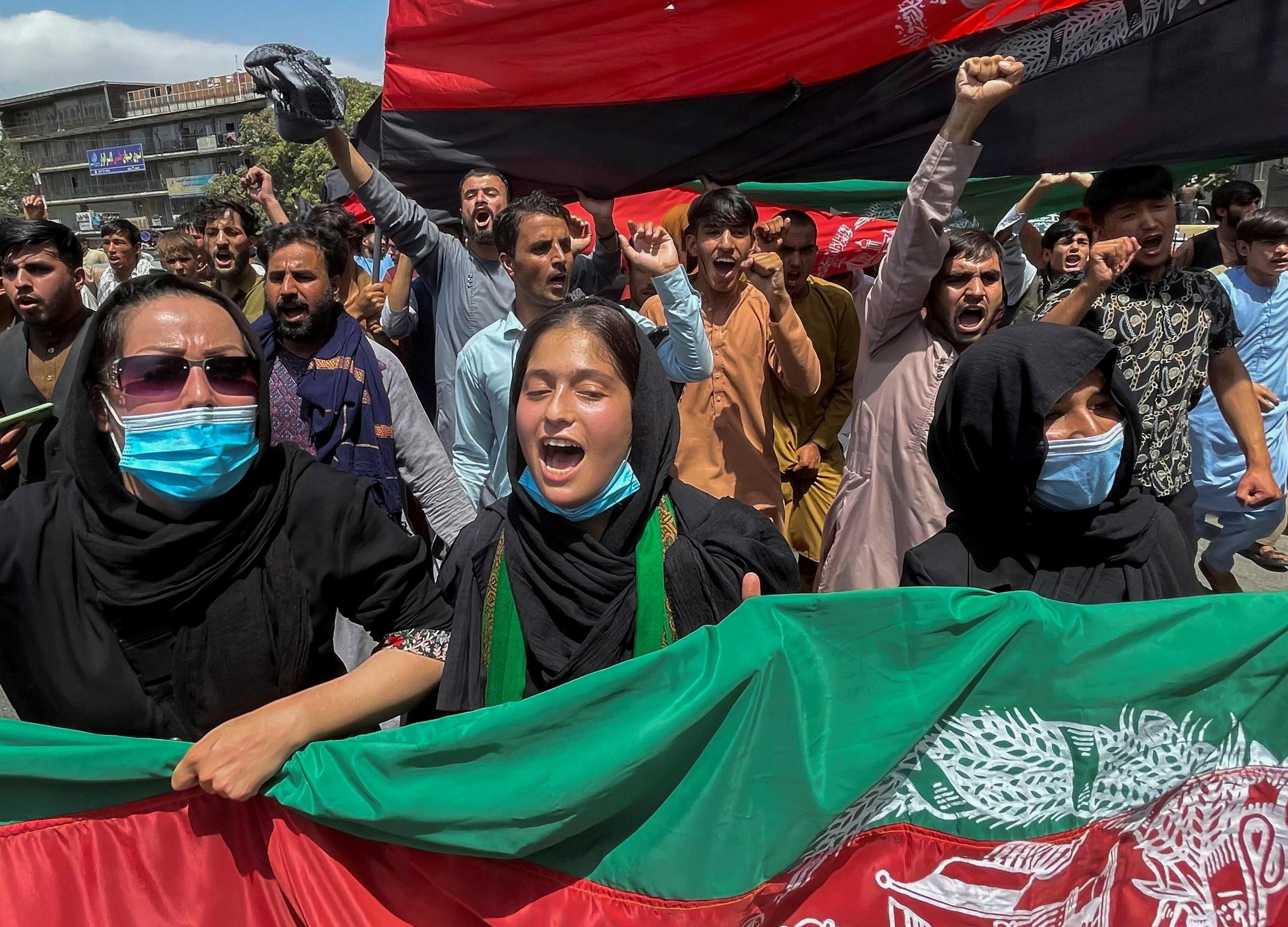Amid the chaos of Taliban-held Afghanistan, part of the international media, some pundits, and the Biden administration are pushing narratives that reinforce their own self-serving views, yet often don't reflect the reality on the ground. This applies, for instance, to the willingness of Afghans to stand up to the Taliban, whether the group actually controls the country, Kabul-centric coverage, and the US scapegoating the Afghan military for the Taliban rout.
We shed some light on what's really happening in Afghanistan with help from Pashtana Durrani, an Afghan teacher and human rights activist who challenged on GZERO World much of what she views as disinformation coming out of her country.
The Afghan people won't resist the Taliban. In fact, that's exactly what some of them are doing right now.
About 200 people took to the streets of Kabul on Thursday to protest against the country's new rulers before they were violently dispersed by Taliban goons. There have been similar modest-sized rallies in Khost, where a curfew has been declared, and Asadabad, where Taliban fighters killed several demonstrators for waving the now-banned Afghan national flag. If the demonstrations grow, bloody crackdowns are all but assured given the group's long track record of showing no mercy to those who defy their rule.
Durrani believes more will come out soon: "Just because a few men in Kabul have changed doesn't justify [...] that we have to change our way of life for them."
The Taliban are fully in charge. Militarily perhaps, but not as a functioning government. After all, most of them only know how to fight.
The Taliban clearly knew how to win the war, but are struggling to figure out how to govern, especially how to pay for it all. If they can't show the Afghan people they are really in control, that'll undermine their legitimacy in the eyes of the population and at least some of the nations they want to do business with (obviously not most democracies).
To run a country, you need a plan, and Durrani says they simply don't have one: "Military men can never do public policy."
Kabul represents all Afghanistan. No, it doesn't. And if the situation in the capital is rapidly deteriorating, it's probably much worse in other parts of the country, where the Taliban can be more brazen because they're not being watched as closely as in Kabul.
For instance, the regime insists that girls have already returned to public schools in Herat, but Durrani claims that private schools remain closed because female students fear the Taliban, and most women are staying home. The regime is trying to put on a show of moderation, yet at the same time activists are raising the alarm about the Taliban going door-to-door to interrogate and intimidate women in places like Kandahar.
Once the foreigners are gone, Durrani predicts the Taliban will show their true face: "They will impose their law [...] They will police people, and they will control them — from what they wear to what they eat, to what they dress to what they listen to, to how they conduct their life."
US President Joe Biden says the Taliban took over so quickly because the Afghan army didn't want to fight. This is not accurate. There's ample evidence (see here, here, and here) demonstrating that despite the US spending $83 billion to equip and train them over 20 years, the Afghan military was no match for the battle-hardened Taliban without US support.
Still, Biden wants to deflect part of the blame for the Taliban rout. But he didn't listen to the CIA. What's more, although many Afghan commanders did surrender to the Taliban without firing a shot, quite a few likely did so to avoid a bloodbath because they were outnumbered, outgunned, and outskilled by the Taliban.
For Durrani, now is not the time to dishonor the Afghan army, no matter how corrupt its political leaders were, because they were willing to fight.
Watch her response to Biden below, and stay tuned for more clips from the interview.
- Afghanistan: Four key failures - GZERO Media ›
- The Taliban are super rich. Is it enough to run a country? - GZERO ... ›
- Would you recognize the Taliban? - GZERO Media ›
- What does a Taliban takeover of Afghanistan actually mean ... ›
- No exit from Afghanistan - GZERO Media ›
- No exit from Afghanistan - GZERO Media ›
- Afghan activist Pashtana Durrani, who fled to the US, is skeptical of Taliban’s claims - GZERO Media ›
